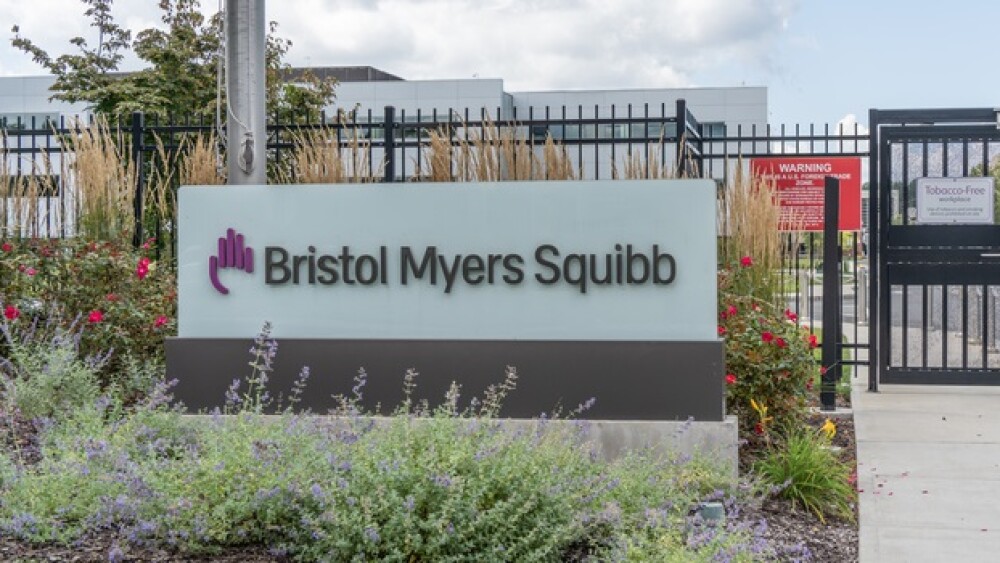The pharma Friday reported in-line and new product revenue growth of 9%, bringing in $9.8 billion for the fourth quarter of 2023. Eliquis and Opdivo remain top sellers but BMS is facing the loss of exclusivity.
Pictured: Bristol Myers Squibb building in Summit, NJ/iStock, arlutz73
Bristol Myers Squibb topped fourth-quarter 2023 expectations on Friday, reporting an in-line and new product revenue increase of 9%, bringing in $9.8 billion. While Wall Street projected overall revenue of $11.19 billion, BMS came in at $11.48 billion—up 1% from the same quarter last year.
The pharma credited its growth in large part to its new drugs, which raked in just over a billion dollars in sales for the quarter—66% higher than the same period in 2022. Its in-line products increased to $8.7 billion over last year’s $8.3 billion for the quarter. Eliquis and Opdivo remained the company’s top sellers, bringing in $2.8 billion and $2.3 billion in the last three months of the year, respectively.
Like its competitors, BMS is facing loss of exclusivity on some of its top sellers. Blockbuster Revlimid has been facing generic competition since 2022. The blood cancer drug still managed $1.45 billion in sales for the fourth quarter—a 36% drop compared to the prior year. The patent cliff also looms for Eliquis and Opdivo, making those new products even more vital. Both lose exclusivity in 2026, with Opdivo’s European Union patent stretching to 2028.
Despite positive revenue growth, gross profit in the fourth quarter of 2023 was down from the same quarter in the prior year—$8.73 billion versus $8.81 billion. Full year revenues and profit for 2023 were down as well, $1.1 billion and $1.7 billion respectively, compared to 2022.
BMS has set its 2024 revenue forecast to increase by low single digits. The outlook is in line with Wall Street estimates, with the company projecting higher-than-expected earnings of $7.10 to $7.40 per share.
The company has been busy expanding its pipeline to offset the anticipated loss of sales to generics. In January 2024, the acquisition of Mirati Therapeutics was completed. Analysts predict its already approved lung cancer drug Krazati will max out sales around $1.3 billion in the 2030s.
Before the end of 2023, BMS added radiopharmaceuticals to its offerings with a $4.1 billion purchase agreement with RayzeBio. The biotech’s lead program is currently in late-stage testing for gastroenteropancreatic neuroendocrine tumors. RayzeBio also has an in-house manufacturing facility under construction which will open in Indiana and begin drug production in the first half of 2024.
In December 2023, BMS also announced a merger agreement with Karuna Therapeutics in a deal worth $12.7 billion in cash acquired. A New Drug Application for Karuna’s schizophrenia drug candidate has been accepted by the FDA, with a decision expected in September 2024.
Kate Goodwin is a freelance life science writer based in Des Moines, Iowa. She can be reached at kate.goodwin@biospace.com and on LinkedIn.






